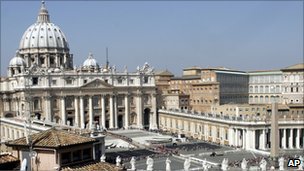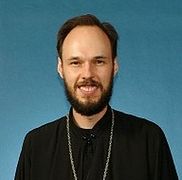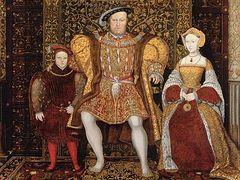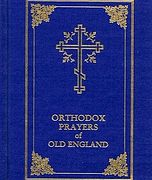November 8, 2010

The move involves three serving bishops and two retired bishops.
The Vatican has said groups of Anglicans can join Catholicism, but maintain a distinct religious identity.
There have been splits among Anglicans over homosexuality and the ordination of women. The Archbishop of Canterbury said the resignations were a "regret".
The men are all suffragan or assistant bishops rather than those in charge of dioceses.
The serving bishops are the Bishop of Ebbsfleet, the Right Reverend Andrew Burnham; the Bishop of Richborough, the Right Reverend Keith Newton; and the Bishop of Fulham, the Right Reverend John Broadhurst.
They will be joined by the former Bishop of Richborough, the Right Reverend Edwin Barnes, and the former Bishop of Ballarat in Australia, the Right Reverend David Silk.
Their role has for several years been - as so-called flying bishops - to look after parishes who could not accept the Church's decision in 1992 to ordain women priests.
Had one of the senior bishops in charge of a diocese decided to convert, that would have been far more serious.
However, a bishop has a special place in the Church of England - a position of leadership for which his authority has been passed down by the laying on of hands from bishop to bishop over the 2,000 years since the time of Jesus and his apostles formed the first, universal, church.
That makes today's announcement at the very least, an important milestone in the development of the Pope's Anglican sanctuary.
Bishops Burnham, Newton and Broadhurst were all acting as so-called flying bishops - ministering to Church of England parishes where congregations voted not to allow a woman priest to preside at services.
BBC religious affairs correspondent Robert Pigott said the announcement was "no big surprise" as it was always likely that these particular bishops' sympathies were with this "special section" of the Catholic Church called an ordinariate.
But our correspondent added that "a bishop is still a bishop" and it should be seen as a big moment for the church.
Bishop Broadhurst, the leader of the traditionalist and mainly Anglo-Catholic organisation Forward in Faith, had already announced in October that he would convert to Rome.
Around the same time, the congregation of St Peter's in Folkestone also became the first to begin the process of leaving to join the Roman Catholic Church.
Christopher Knight, a theologian and member of Forward in Faith, said that the grouping counted at least 800 Anglo-Catholic priests among its members and "the signs are that more priests will leave from the Anglo-Catholic wing and their churches will be seriously affected".
The Times religious affairs correspondent Ruth Gledhill told the BBC the announcement could prompt "hundreds, possibly thousands" of lay ministers to follow the bishops' example.
She said: "It's quite significant as it means the ordinariate - that quite a few people have been saying might not get off the ground - could be a force to be reckoned with."
'Devoted labours'
The move was announced by the Roman Catholic Church in England and Wales.
In a statement, the five bishops said: "We have been dismayed, over the last 30 years, to see Anglicans and Catholics move further apart on some of the issues of the day."
They said the Vatican's proposal for the new structure was "both a generous response to various approaches to the Holy See for help and a bold, new ecumenical instrument in the search for the unity of Christians."
The resignations will formally take effect at the end of the year.
Bishop Burnham told the BBC that the decision was not just about the issue of women bishops.
"It's about whether the Church of England, as it's always claimed to be, is faithful to the undivided Church of the first thousand years and faithful to its faith and orders - or whether it feels it can make things up and change things as it goes.
"And, increasingly, over the last few years, it has acted as though it is autonomous in these matters and can make things up as it goes and women bishops is simply the latest example of that."
Bishop Broadhurst said he was "moving against the backdrop of a deteriorating situation within the Church of England".
The Archbishop of Canterbury, Dr Rowan Williams, said: "I have today with regret accepted the resignations of Bishops Andrew Burnham and Keith Newton who have decided that their future in Christian ministry lies in the new structures proposed by the Vatican.
"We wish them well in this next stage of their service to the Church and I am grateful to them for their faithful and devoted pastoral labours in the Church of England over many years."
Bishop Alan Hopes, Roman Catholic auxiliary bishop in the Westminster Diocese, said the Church welcomed the decision of the five bishops.
He added: "At our plenary meeting next week, the Catholic Bishops' Conference of England and Wales will be exploring the establishment of the ordinariate and the warm welcome we will be extending to those who seek to be part of it."



